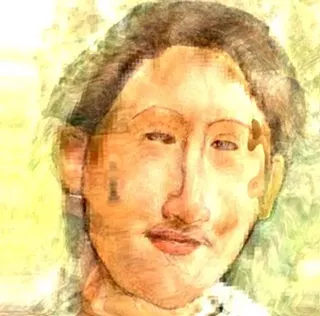If you know much about Christopher Durang, you know that his plays usually veer madly in and out of various levels of absurdity. All right, a play in which a nun sets out the core beliefs of the Catholic faith is already flirting with theater of the absurd. But you just know that Durang is sooner or later going to push the proceedings into absolute lunacy.
In Beowulf Alley's production, which opened last weekend, the absurdity comes later. Actress Lesley Abrams and director Jonathan Northoven introduce Sister Mary Ignatius as a hard-core traditionalist who goes along with the reforms of Vatican II with the greatest reluctance, but she's no nut. Even when she's pulling the trigger near the end, she seems entirely cool and reasonable.
It's way too easy to present sister Mary Ignatius as a nutcase from the very beginning, but at Beowulf Alley, her madness sneaks up on you. She begins by outlining, with grade-school drawings on a big flip pad, the distinctions between heaven, hell and purgatory. She elucidates the difference between venial and mortal sins. She rewards a 7-year-old (the bright Molly Howard) with little cookies for correct catechism responses, as if she were tossing treats to a trained dog. Nothing, really, that you wouldn't find at your average Catholic school, at least a few years ago.
Only after the nun's presentation is infiltrated by former students who have learned that life is far more complicated than it seemed in catechism class does Sister Mary Ignatius' iron will and unwavering belief in Church teachings manifest themselves in utter insanity. Even then, she somehow seems almost reassuring in her faith.
This is much more difficult to pull off than had Northoven and Abrams revealed the nun's loopiness too soon. Abrams maintains a beatific smile through most of her presentation, and she seems perfectly real to us, if naive in her trust in the most unrealistic expectations of Catholic dogma.
Nell Summers, as one of the disgruntled students, has a fine turn in her earnest monolog detailing how her education under Sister Mary Ignatius' thumb failed to serve her in real life, and she's ably abetted by Guy Castonguay, Barbara Flanary and Chris Moseley. This is a relief, because by the very nature of the pre-intermission playlet, one had reason to question their skills.
The double bill opens with Durang's The Actor's Nightmare, which is exactly what it sounds like. A man (Moseley) finds himself thrust onstage at the last minute in a play he hasn't rehearsed and whose lines utterly escape him. At first, it's Noel Coward, then Shakespeare, then Beckett, and ultimately Robert Bolt's A Man for All Seasons. This is very funny stuff on paper for people who know the authors in question (most accessible is the man's desperate reliance on every stray Shakespeare quote that comes to mind, relevant or not), but on stage, it goes on a bit too long.
The danger in presenting a play about actors acting is that the director and actors, as is the case here, tend to make the "acting" a little wooden so the audience knows they're acting. The result at Beowulf Alley is a bit too stiff for its own good, but Sister Mary Ignatius easily redeems the evening.







